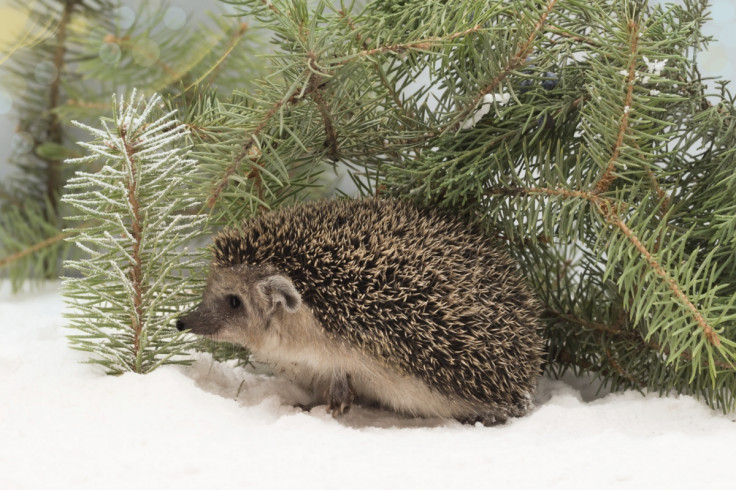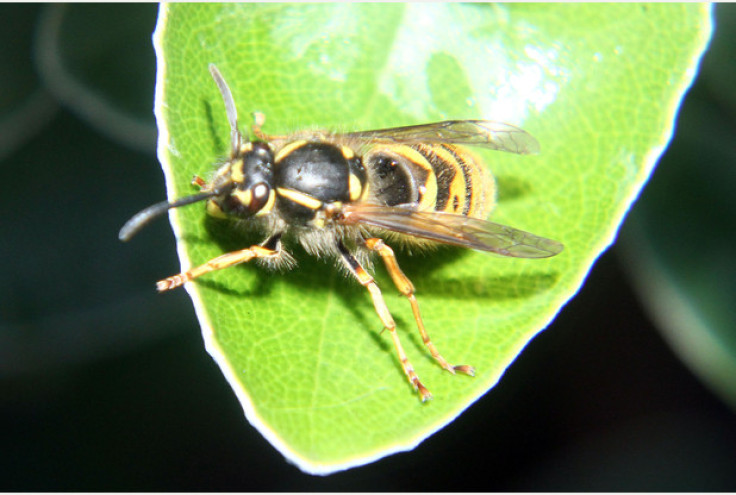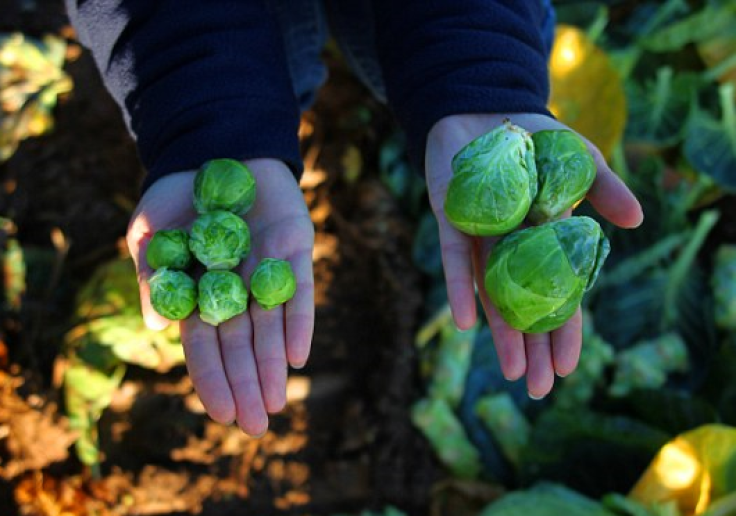Warm winter: Sunbathing wasps, giant sprouts and winter daffodils – what can we expect in 2016?

To say we are not used to the mild winter we are experiencing in the UK would be an understatement. The maximum temperature on December 30 a decade ago was below 9 degrees Celsius. In 2015, the same day was more than 5C more, at 14 degrees Celsius.
Five centigrade may not seem like much when you consider how warm it can get in the summer – and indeed, you would probably be slightly chilly if you tried to sunbathe at the moment – but nature works differently. This year's warm winter is expected to have a knock-on effect in 2016, and the UK's wildlife and plants are due to be hit hardest.
"Over the past few decades we have seen that many typical signs of spring, such as flowering and bird migration, have been happening earlier and earlier in the year," says Dr Stephen Thackeray, ecologist at the Centre for Ecology & Hydrology in Oxfordshire. However, Thackeray also says some wildlife and plant species are not changing their own habits in line with the changing temperatures, and "this has meant that some species cannot 'keep pace' with changes in the other species on which they depend".
One such example of this would be fish species in England's largest natural lake, Windermere. Perch have always synchronised their breeding time with the influx of seasonal food for their young. This warm winter has confused them about what time of the year it is, and the warmer water has led the perch to believe we entered winter later, changing the time that they set aside for breeding.
Thackeray says: "We know that time-of-breeding of some freshwater fish has changed more slowly than the timing of seasonal food resources for the resulting young fish that hatch from these eggs. This has had an effect on the survival of these offspring."
It is not just aquatic animals that are going a bit crazy with the bizarre weather conditions. The Devon Wildlife Trust has reported numerous photographs being sent to them of hedgehogs seen in gardens. Typically going into hibernation no later than November, they are not really supposed to be seen at all until March.
In some regards, it is a blessing in disguise for hedgehogs, as the warm summer prompted late breeding. An equally warm winter means that the young have longer to fatten up before their long sleep. In 2013 a similar situation arose, but the typically cooler months were not as warm – ultimately to the misfortune of baby hedgehogs.
Insects are not exempt from the peculiar nature of the unseasonal weather. One thing we do not expect to see at this time of the year is wasps. However, photographer Neil Hope spotted a wasp 'sunbathing' in Torpoint, Cornwall, just two days before Christmas.

How could we forget every childhood nightmare, spiders? In particular, the steatoda, or false widow, has become increasingly spoken about, as the UK's most venomous spider increases in number. Unfortunately for those that do not like spiders, the mild weather is favourable for false widows in the short term. The warm climate means that the spiders have more food, so they are expected to become bigger in population... as well as in size.
Clive Boase of The Pest Management Consultancy in Liverpool says that the warm winter "has led to more invertebrates, such as flies, to feed on and means false widows have been able to continue their development throughout the summer". He adds: "Sightings of spiders often peak from September as males of many species reach adulthood and venture into homes in search of a mate, but we could be seeing a lot more of them than normal over the next month or two."
Experts are also being surprised by the emergence of some plants this season. Daffodils, for one, are popping up all over the place, despite usually blooming around March. Pictures were taken in the middle of December showing the flowers in full bloom at London's Queen Elizabeth Olympic Park.
People surprised by the daffodils in bloom at the Queen Elizabeth Olympic Park in London yesterday. Jo pic.twitter.com/cVN2F6TF8E
— BBC Weather (@bbcweather) December 17, 2015Daffodils have an inbuilt mechanism that tell them the best time to bloom – after periods between 2-10 degrees Celsius. Seeing as this winter's temperatures have frequently been above that 10-Celsius threshold, they are coming out in full force.
That is not good for daffodils, as they are not expected to survive as January looms. The leaves and flowers would die, and the plants that bloomed earlier in the season would struggle to come out again at the usual time.
Paul W Meyer, director of Morris Arboretum in Pennsylvania, has studied flowers for a long time. He tells Philly News: "The thing that concerns me is that it's been so warm for so long that we may be setting ourselves up for problems when a serious cold snap hits us." Optimism blossoming, he continues: "All could be well if we continue to have a mild winter."
That positivity is the opposite to what British blackcurrant-grower Jo Hilditch wants, though. Fruit trees need a period of dormancy to continue their development. That period is usually the winter time. This year, however, Hilditch's blackcurrants have not had nearly enough time to chill. Selling her two fruit varieties to Ribena, she needs 1,400 hours of chill time for one variety and 2,200 for the other. The season's weather has meant that her produce has managed less than a seventh of that, at 192 hours.
Vegetables, on the other, do not need a dormancy period. In fact, quite the opposite. Vegetable farmers are enjoying the warm winter, as their stock are reported to be growing much larger than usual. Some brussel sprouts have been found to be 20% larger this year than the average sprout. Supermarket Morrisons even says it was selling some brussels at more than double their average weight. Whilst it would probably still be easy to tell the difference between a brussel sprout and a cabbage, these super-sized vegetables are now bigger than the average child's mouth – similar to the size of a golf ball.

The mild weather gives the sprouts a chance to reach their full maturity earlier, and they can therefore continue to grow. That means they take an extra two minutes to cook.
Therefore, the warm winter has been better received by some compared with others, but if experts are correct in their reasonings behind the odd temperatures, everyone may well have to get used to this abnormality soon.
Stephen Thackeray says: "Many such changes have been linked to climatic change, and there are already many anecdotal reports of unusually early spring events during this exceptionally mild winter." He summarises: "Only data collected over the coming year will reveal the full extent to which the current conditions have impacted upon our wildlife."
© Copyright IBTimes 2024. All rights reserved.






